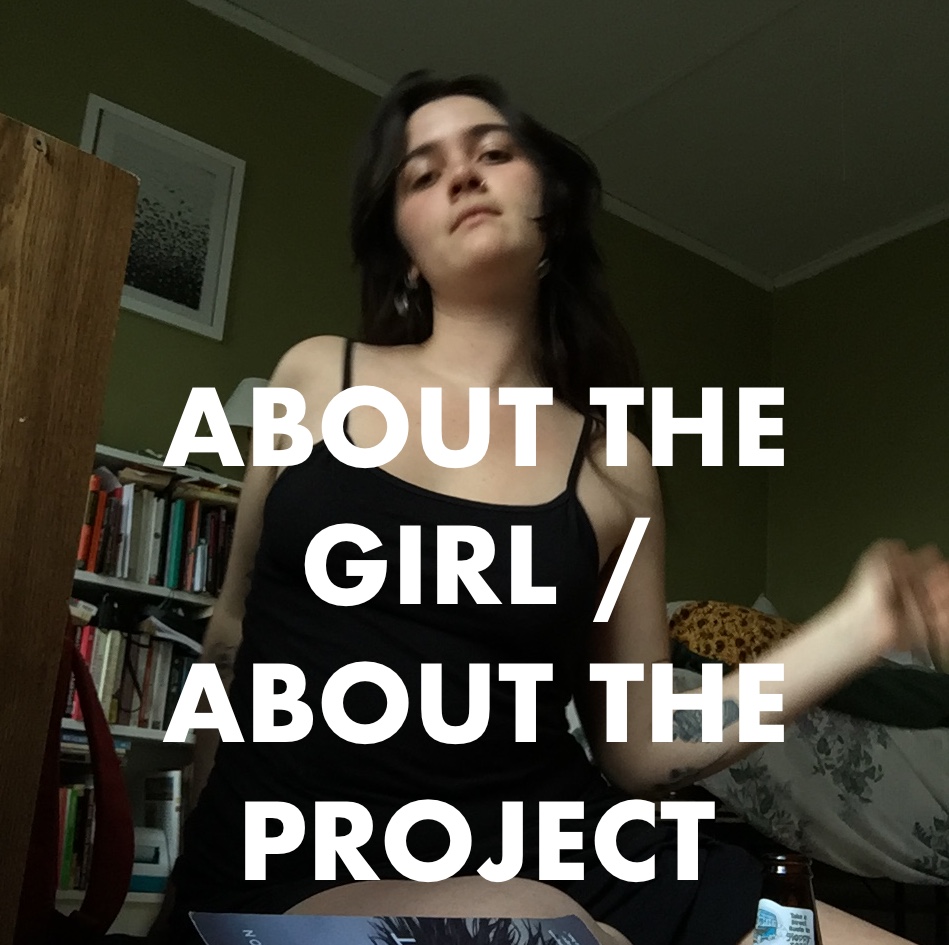ABOUT THE GIRL / ABOUT THE PROJECT
my name is Tara Dyer Sacerdote.
I am an art history major, museums studies concentrator and recipient of the 5-College Certificate in Native American and Indigenous Studies.
I grew up in Lawrence, Kansas. My ancestry is mixed. My mom’s side of my family is white settlers. They are artists and I am blessed to come from such a creative line. My dad’s side is white as well, but also of the Prairie Band Potawatomi Nation and the Choctaw Nation of Oklahoma. I’m all these things in one body and I’m here at Smith College, built on the homelands of the Nonotuck, Pocumtuc, Nipmuc, and Wabanaki peoples.
INDIANS IN ART MUSEUMS is a culmination of my work in the museums studies capstone seminar over this last semester. This project grew out of frustration and disappointment in a thing I love: the art museum. To be in any museum is to build from a strong foundation of colonialism and dispossession. But it is not my hope to burn all museums to the ground, because I like them. They are fun, formative, and challenging.
The goal of this project is to help us figure out how to make this work. Indians are contemporary artists and the contemporary arts museum is a good space for contemporary artists to occupy. How can an institution establish not just space, but respect, for living ndn artists? Is it possible to go beyond “inclusion” and tokenism? INDIANS IN ART MUSEUMS is a set of resources that have been helpful for me in sorting some of this shit out. This set of resources is by no means exhaustive, but my hope is that you will use it as a tool for teaching, learning, and both personal and professional development. I hope that “you” are students, educators, museum staff, all your friends, and everyone I know.
All of the “readings” are clickable, searchable PDFs. I made the decision to include these files and to make this website public because it is my belief that the world is better if more people have more access to more information.
In INDIANS IN ART MUSEUMS, I use ‘ndn,’ ‘Indian,’ ‘Indigenous,’ and ‘Native’ interchangeably. This is to signify that we refer to ourselves in a multitude of ways. Whenever possible, I list the writer/artist’s tribal affiliation.
If you have questions, complaints, comments, edits, or additions, please get in touch. My personal email is tarasacerdote@gmail.com. Miigwetch (thank you) for engaging with this resource. I hope it helped you to think about something you hadn’t considered before.
Big thanks to Marysa Sacerdote, my mom, and Daniel Dyer (Wab Nish Kum), my dad for making this happen. Thank you to Dana Leibsohn for never letting me be lazy. Thank you to all my friends, especially Sarah White, Helen Ramspott, and Anna McKenna, for always listening. Miigwetch to those who came before for making this world possible.
Thank you to Emma Chubb, Nicole Bearden, Jessica Nicoll, Charlene Shang Miller, and Brendan O’Connell for their support on this project.
